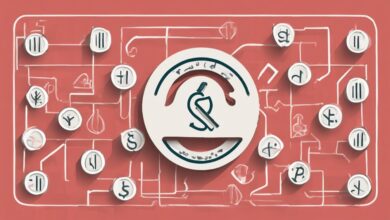
Why Are Cigarettes Linked to Cancer? (Top 10 answers)
You may wonder why are cigarettes linked to cancer? The answer lies in the intricate relationship between tobacco smoke and the human body. While it’s common knowledge that smoking is harmful, the specific mechanisms through which cigarettes cause cancer are often overlooked.
Understanding how the chemicals in cigarette smoke interact with your cells can shed light on the insidious nature of this connection. By exploring the impact of carcinogens and DNA damage, you can gain insight into the profound health consequences of smoking that extend far beyond what meets the eye.
Table of Contents
Top 10 answers for cigarettes linked to Cancer
1. Carcinogens in Cigarette Smoke

Exposure to cigarette smoke introduces individuals to a complex mixture of over 7,000 chemicals, including at least 70 known carcinogens that significantly contribute to the development of cancer. Among these carcinogens, polycyclic aromatic hydrocarbons (PAHs), nitrosamines, and aromatic amines stand out as some of the strongest contributors to cancer risk. Each cigarette exposes smokers to approximately 1.4 to 2.2 milligrams of these harmful substances, further elevating the chances of developing cancer.
The International Agency for Research on Cancer (IARC) has classified 15 carcinogens found in cigarette smoke as group 1 carcinogens in humans, underscoring their potent cancer-causing abilities. Even the presence of weaker carcinogens like acetaldehyde and isoprene in higher concentrations adds to the overall cancer risk associated with smoking. Understanding the extent of carcinogen exposure through smoking is crucial in comprehending the heightened cancer risks faced by individuals who smoke cigarettes.
Related Article: Smoking and Cardiovascular Health: A Comprehensive Analysis
2. DNA Damage and Mutations
Binding to DNA, carcinogens in cigarette smoke instigate mutations that play a pivotal role in the development of cancer. These mutations primarily manifest as DNA adducts at guanine bases, leading to G-to-T transversions during replication, effectively creating genetic alterations induced by smoking.
The TP53 gene, crucial for suppressing tumors, is often the target of these mutations. Remarkably, the locations of these mutations within TP53 correspond to the sites where cigarette smoke adducts form. While the DNA repair mechanisms in our cells work diligently to rectify such damage, the overwhelming exposure to cigarette smoke can surpass the repair capacity, allowing mutations to persist.
Understanding these mechanisms sheds light on the importance of mutation prevention strategies, emphasizing the significance of reducing exposure to cigarette smoke to lower the risk of cancer development. By safeguarding the integrity of your DNA through healthy lifestyle choices, you actively contribute to reducing the chances of mutations that may lead to cancer.
3. Biomarkers of Carcinogens
The presence of specific DNA adducts serves as key biomarkers indicating exposure to carcinogens from cigarette smoke, shedding light on the mechanisms by which these compounds contribute to cancer development.
DNA adducts are chemical modifications on DNA caused by carcinogens present in cigarette smoke. Detecting these specific DNA adducts is crucial in revealing the presence of carcinogens from cigarette smoke in your body.
This detection is instrumental in understanding how these carcinogens initiate the process leading to cancer. Certain DNA adducts formed by cigarette smoke carcinogens have the potential to cause mutations in essential genes that play a role in cancer suppression.
4. Metabolic Activation of Carcinogens
Metabolic activation of carcinogens in cigarette smoke plays a crucial role in initiating the formation of DNA adducts, a key step in the development of smoking-related cancers. Enzyme regulation is pivotal in these metabolic processes, where specific enzymes modulate the activation of carcinogens into reactive intermediates capable of binding to DNA. These metabolic pathways transform relatively inert compounds present in cigarette smoke into DNA-damaging agents, promoting genetic mutations that can lead to cancer.
Through intricate metabolic pathways, various enzymes work together to bioactivate the carcinogens, creating DNA adducts that interfere with normal cellular functions. Understanding these processes sheds light on how cigarette smoke-induced DNA damage accumulates, eventually contributing to tumor initiation and progression. Polymorphisms in enzymes involved in these pathways can influence an individual’s susceptibility to smoking-related cancers by affecting the efficiency of DNA adduct removal.
5. DNA Repair Mechanisms
Effective DNA repair mechanisms are critical for cells to remove DNA adducts caused by carcinogens present in cigarette smoke, thereby preventing the accumulation of mutations that can lead to cancer.
Polymorphic variants in repair enzymes can affect the efficiency of DNA adduct removal, influencing individual genetic susceptibility to cancer development.
When these repair systems fail to address DNA damage induced by smoking, such as the formation of DNA adducts, there’s a higher risk of DNA adduct accumulation, which can lead to mutations in essential genes like TP53.
Cigarette smoke contains various harmful compounds that can overwhelm the DNA repair processes, further increasing the risk of cancer.
Understanding the intricate details of DNA repair mechanisms is crucial in unraveling how cigarette smoking contributes to cancer risk.
6. Gene Mutations in Cancer
Exposure to carcinogens in cigarette smoke induces gene mutations that disrupt normal cellular growth control mechanisms. These mutations can be particularly harmful when combined with genetic predispositions, increasing the risk of cancer development. The impact of environmental factors, such as cigarette smoke, on mutation occurrence is well-documented in scientific research. Carcinogens present in tobacco smoke can lead to chromosome damage in aerodigestive tract cells, creating a conducive environment for cancer to thrive.
Notably, the balance between apoptosis (programmed cell death) and its suppression mechanisms can be disrupted by cigarette smoke components, further fueling tumor growth. Substances like nicotine and tobacco-specific nitrosamines activate crucial biological pathways that play a significant role in cancer progression. Additionally, cocarcinogens and tumor promoters found in cigarette smoke work synergistically to enhance the carcinogenicity and advancement of cancer.
Understanding the intricate relationship between gene mutations induced by cigarette smoke and cancer development is crucial in comprehending the mechanisms underlying this harmful association.
7. Cell Growth Control and Cancer
The influence of gene mutations induced by cigarette smoke on cell growth control mechanisms is a critical factor in understanding the progression of cancer development. When these mutations disrupt the intricate balance of cell proliferation mechanisms, they can lead to uncontrolled cell growth and tumor formation. Tumor suppressor genes, responsible for regulating cell division and preventing abnormal growth, are particularly vulnerable to the damaging effects of cigarette smoke carcinogens. The imbalance between cell death (apoptosis) and the activation of tumor suppressor genes can result in the survival and proliferation of cells with damaged DNA, further fueling the development of cancer.
Cigarette smoke exposure not only directly damages DNA but also interferes with critical pathways that control cell growth and differentiation. Nicotine and tobacco-specific nitrosamines, found in cigarettes, can activate signaling pathways associated with uncontrolled cell proliferation. Moreover, cocarcinogens and tumor promoters present in cigarette smoke can amplify the carcinogenic effects on cell growth regulation, creating an environment conducive to cancer development. Understanding how cigarette smoke disrupts cell growth control mechanisms sheds light on the mechanisms underlying cancer progression in smokers.
8. Immune System Impact
Smoking diminishes immune function, hindering the body’s ability to combat infections and cancer cells effectively. The immune response, crucial for identifying and removing abnormal cells such as cancerous ones, is compromised in individuals who smoke. This impairment in immune function not only increases susceptibility to infections but also heightens cancer susceptibility.
The body’s ability to detect and destroy cancer cells is weakened by chronic smoking, leaving individuals more vulnerable to various types of cancers, including lung cancer. Moreover, smoking-induced inflammation and oxidative stress further exacerbate immune suppression, creating an environment conducive to cancer development.
9. Family History and Lung Cancer
Chronic exposure to tobacco smoke can significantly impact your lung health, especially when considering the influence of family history on the development of lung cancer. Genetic predisposition plays a crucial role in determining an individual’s susceptibility to lung cancer. Family risk factors, such as having a first-degree relative with lung cancer, can elevate your chances of developing the disease.
Genetic factors not only contribute to an increased risk but also interact with environmental exposures within families, further influencing the likelihood of lung cancer. Understanding your family history is essential as it allows for a more accurate assessment of your lung cancer risk. By recognizing these genetic and familial influences, individuals and healthcare providers can implement appropriate screening measures to detect lung cancer early.
Being aware of your family history and its implications on lung cancer risk empowers you to make informed decisions regarding your health and well-being.
10. Tobacco Smoke and Cancer Promotion
Exposure to tobacco smoke introduces a complex array of carcinogens and chemicals that actively promote cancer development within the body. Tobacco smoke contains over 7,000 chemicals, at least 70 of which are known carcinogens. Carcinogens such as polycyclic aromatic hydrocarbons (PAHs) and nitrosamines play a crucial role in promoting DNA damage and mutations associated with cancer. The metabolic activation of these chemicals leads to the formation of DNA adducts, disrupting normal cellular processes and increasing the body’s susceptibility to cancer.
The toxic combination of carcinogens, cocarcinogens, and tumor promoters in cigarette smoke significantly enhances the carcinogenicity and cancer promotion effects. This exposure can result in gene mutations, chromosome damage, and disturbances in cellular mechanisms that drive the development and progression of cancer. Understanding these mechanisms is essential for developing effective cancer prevention strategies and public health initiatives aimed at reducing tobacco-related cancer burdens. By addressing the promotion of cancer by tobacco smoke, targeted interventions can be implemented to mitigate its harmful effects and improve overall public health outcomes.
Frequently Asked Questions
What Is the Main Cause of Cancer in Cigarettes?
The main cause of cancer in cigarettes is the presence of harmful chemical compounds that induce DNA mutations. These mutations disrupt normal cellular function, leading to uncontrolled cell growth and tumor formation, contributing to the development of cancer.
Why Do Some Smokers Stay Healthy?
You stay healthy despite smoking due to a combination of genetic factors, lifestyle choices like regular exercise and a healthy diet, and early detection of health issues. These elements, along with a strong support system, help mitigate risks.
What Are the Odds of Getting Cancer if You Smoke Cigarettes?
If you smoke cigarettes, your odds of getting cancer increase significantly. Genetic predisposition and lifestyle factors play a role. Quitting smoking reduces risks and promotes better health. Understanding the dangers is crucial for your well-being.
Why Do so Many Smokers Not Get Cancer?
You might not develop cancer from smoking due to genetic predisposition, lifestyle choices, and varying exposure to harmful substances. Your body’s ability to repair DNA, metabolism efficiency, and overall health status influence your cancer risk.






Leave a Reply